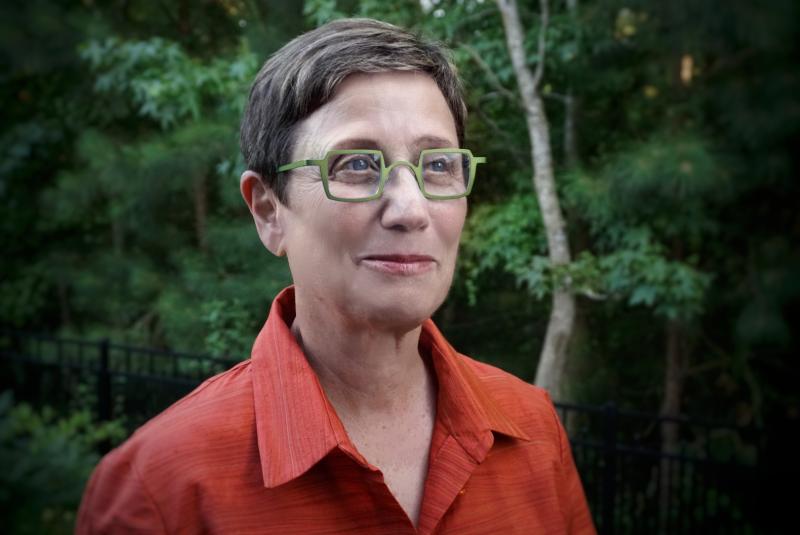National environmental advocacy career motivates new council member
Editor’s note: Three candidates, calling for controls on what they see as overwhelming housing and commercial development, defeated incumbent Sussex County Council members at the polls. The newcomers say they have a mandate from the public to drastically alter the course of growth. The Cape Gazette is profiling them and their goals as they prepare for the start of their four-year terms next month.
Jane Gruenebaum had a career based in Washington, D.C., lobbying for public policy to support environmental groups. She spent summers in Sussex County for years.
After retiring in 2018 and moving to a permanent home in Rehoboth Beach, Gruenebaum was naturally drawn to the fight to protect the Coral Lakes forest from development. The project would later be renamed Brentwood, and is currently under construction. She soon broadened her involvement in other Cape Region environmental issues, co-founding the Sussex Preservation Coalition.
The environment, and quality of life in Sussex County in general, will be among her primary concerns as she takes her oath of office Jan. 7 to begin a four-year term on Sussex County Council, she said.
Residential and commercial development have been booming for years in the county, prompting a growing backlash against the consequences of that growth on schools, traffic, emergency services and healthcare.
That public sentiment seemed evident in recent elections, when three candidates pressing for controls on that growth won all the council seats on the ballots, Gruenebaum said. The Democrat unseated incumbent Republican Mark Schaeffer in the District 3 general election. Winning in the Republican primary were Matt Lloyd over Council President Michael Vincent in District 1 and Steve McCarron over council member Cindy Green in District 2.
“If ever there was an election that sent a message, it was this one,” Gruenebaum said. “All of us ran with a similar message, that we need to handle development differently.”
The election results give those who want to place some limits on development a majority of like-minded people on the five-member council and a real chance to shape policy, she said.
Gruenebaum retired from a career in executive director or policy director jobs with nonprofit environmental organizations.
After receiving a PhD from Columbia University, Gruebaum taught political science for a few years, then moved to the nation’s capital to become more active in environmental issues. She worked at the Brookings Institute, a nonprofit group that conducts independent research to improve policy and governance at all levels of government. That led Gruenebaum to a series of jobs for advocacy groups.
Greenbaum said she sees parallels between her past jobs and her new role on Sussex County Council.
“All of my career has been in advocacy, working with national or state legislators to get policy changed or enacted, or in some way affect policy development,” she said. “That’s essentially what I’ll be doing on the council.”
Unchecked development can have profound consequences, she said.
“We have allowed development to destroy too much forestland, too much wetlands and marshes,” she said.
Preserving the environment protects local residents from environmental threats and improves the quality of life through recreation, she said.
“We’ve been making our lives more vulnerable to the environment,” she said.
Development is inextricably linked to the environment, she said.
“I want to work with colleagues to prompt commonsense development that protects the environment and makes for a more livable community,” she said.
While her district includes primarily beachfront communities, Gruenebaum said council has to balance the much-different issues in the eastern and western halves of the county.
“We have to understand there are different environmental issues in eastern Sussex than there are in western Sussex," she said.
The same goes for development, said Gruenebaum, who wants to limit growth in farmland and forests, support emergency services, reduce traffic and create affordable housing.
Developers want to know what the rules are. She said they must be clear and not too restrictive.
Gruenebaum said she favors imposing impact fees on developers – something the previous council was reluctant to approve – so developers pay the increased cost of services resulting from residential and commercial growth. But she wants to exempt those with low incomes and first-time homebuyers.
Development issues are interconnected, she said, noting protecting the environment makes for a better quality of life that will attract physicians to fill gaps in healthcare coverage, and supporting affordable housing helps people who have lower-paying healthcare jobs.
“The council has a role to play in all of these issues,” she said. “There has to be better planning. In the past, developers drove development. We have to do a better job of driving the bus.”




















































